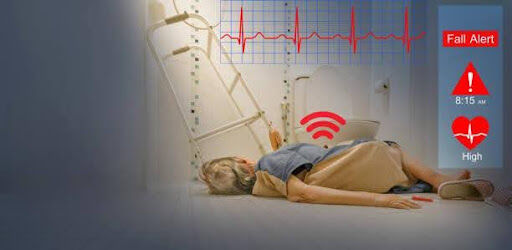
Falling can be risky and should be avoided, especially for elderly and sick people. It can cause accidents, disable the affected person, or place their lives in danger. Fortunately, fall detection devices come in handy. The devices track mobility and notify caregivers if the patient has fallen, thus getting help immediately. But how do you decide which is best?
It is difficult to identify the most suitable fall-detection device for subsequent use. However, keep in mind that the best device should suit your lifestyle, your health, and your pocket. It should also contain features that will make you feel secure.
This guide will help you understand the major considerations for choosing the right fall detection device this fall. Keep reading!
1. Understand Your Needs
Knowing your needs will enable you to select the best fall detection system. You wonder—who will use the gadget? Is it for someone you look after, a relative, or yourself? Understanding the user’s circumstances helps you decide.
Think about the person’s daily activities and medical condition. Are they rather active, or do they mostly stay at home? For someone who travels regularly, a portable device is quite a good option. Should the user spend most of their time indoors, a device designed for one location could be enough.
Also, remember the level of help needed. Does the user need a basic device for an emergency or a more functionally equipped device? For instance, automatic fall detection can identify a fall and warn without human intervention. GPS tracking shows their location and is hence helpful for those who go out often.
List these requirements. This will help you remain focused when browsing several devices. Knowing your needs enables you to select a device fit for the situation. Remember that the goal is to find a device providing a suitable level of security and comfort.

2. Check the Features
Fall detection devices offer several features, so you should know what you need. Begin with their basic uses. Most devices let monitoring centers or emergency contacts know when their users fall. Safety comes from this fundamental ability of great importance.
Some devices go beyond basic features. Among these is GPS tracking, which finds the user if they’re outside. Those who love to travel or walk could discover tremendous advantages from this. Two-way communication also has to be considered. It helps the user interact with family members or emergency services.
Among these advanced technologies are health monitoring features that track heart rate or activity level. These can help people with ongoing medical problems, but not everyone wants these extras.
One should also look at the dependability of the fall-detecting system. While one device missing falls is dangerous, another that provides misleading warnings could be stressful. Look for reviews or recommendations to find devices with accurate detection.
Make a list of required features and compare several devices. This will help you choose one that meets your safety criteria without unneeded extras.

3. Evaluate the Comfort and Design
Using fall-detecting tools should be easy and pleasant. Many tools—including pendants, bracelets, or clips—are worn on the body. Choose one the user will be able to wear comfortably for long periods. If the device is too heavy or tight, it could be uncomfortable and not used.
Usually, the best choice is lightweight devices. They do not feel heavy and do not impede routine activities. Adjustable straps or bands are also helpful. They allow you to change the scale to suit you better.
Those who oppose wearing devices have other options. Certain appliances can be strategically placed on walls, say, in the bedroom or bathroom.
Another important factor is design. Some users prefer discreet devices that look like jewelry or smart gadgets. This helps them feel confident wearing the device in public. Others might be fine with obvious designs, especially if safety is given top priority.
Since device usage frequency depends on design and comfort, these factors are crucial. Technology that seems appealing and natural enhances its likelihood of being used, ensuring constant safety.
4. Compare Subscription Plans
Many fall-detecting devices require a monthly subscription. These plans cover features such as monitoring and emergency alerts. Review the costs and features of every plan before deciding what to buy.
Some devices come with moderately priced plans with minimum capability. Others have more advanced offerings but higher costs. Select a plan that fits your budget and provides the level of security you need.
Check for overly concealed expenses. Some companies charge more for tools, updates, or installations. Always go over the terms and conditions carefully. This guarantees no shocks later on.

5. Test Customer Support and Reliability
Good customer support is essential for fall-detection devices. Should something go wrong, you need quick and helpful assistance. Before you buy, check the company’s customer service.
Test also the device’s dependability. Does it provide immediate alarms? Does it work well if the signals are weak? Dependability is crucial in an emergency.
Ask about return rules or trial lengths. This allows you to test the device at home before committing fully. Should the device let you down, you can switch or return it.
The best fall-detection device requires patience and research. First, be aware of your requirements and look at the current options. Focus on dependability, comfort, features, and membership programs. A good fall detector provides peace of mind and helps you or a loved one stay safe.





(0) comments
We welcome your comments
Log In
Post a comment as Guest
Keep it Clean. Please avoid obscene, vulgar, lewd, racist or sexually-oriented language.
PLEASE TURN OFF YOUR CAPS LOCK.
Don't Threaten. Threats of harming another person will not be tolerated.
Be Truthful. Don't knowingly lie about anyone or anything.
Be Nice. No racism, sexism or any sort of -ism that is degrading to another person.
Be Proactive. Use the 'Report' link on each comment to let us know of abusive posts.
Share with Us. We'd love to hear eyewitness accounts, the history behind an article.